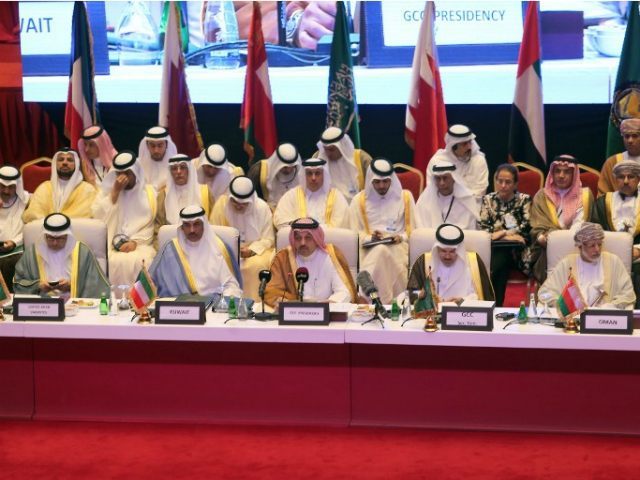The oil-rich Gulf states are growing sensitive to the criticism that they aren’t taking in any Syrian refugees, and they’re responding by telling the Western world to accept more of them.
“Foreign ministers of the six Gulf Cooperation Council (GCC) countries, following a meeting in Riyadh, called for a political solution in Syria as part of a worldwide effort to tackle the refugee crisis,” reports The Saudi, working from an AFP report.
That is what everyone has been saying during the long years of bloody civil war in Syria: We must have a political solution. In other words, they are waiting for the Syrian crisis to sort itself out with a round of discussions resolving the difference of opinion between dictator Bashar Assad, the terrorist forces from ISIS and al-Qaeda, and everyone in Syria rebelling against Assad’s rule without wishing to join a terrorist army. Assad is of the opinion that he should remain in power, and everyone who opposes him should either die or leave Syria. This is not an opinion that can be swayed with a political debate.
Rumors that a “political solution”—that involved Assad stepping down—could have been reached a few years ago have been swirling around, but that ship has likely sailed now that Russia is joining Iran in putting boots on the ground to protect the regime.
According to The Saudi, the Gulf Cooperation Council released a statement calling on “the international community to assume its responsibilities to help Syrian refugees.”
As for the charge that these wealthy Gulf nations aren’t interested in accepting any refugees themselves, the GCC declared that its guest-worker programs were more than good enough to satisfy their responsibilities, because their “Syrian brothers” are “treated like residents and benefit from free healthcare, education, and the right to work.”
The six nations of the GCC boasted of accepting “hundreds of thousands of Syrian refugees” into these guest-worker programs and pointed out that none of its member states are signatories to the conventions governing treatment of asylum-seekers. They also cited their financial contributions to refugee relief in temporary shelters along the Syrian border.
They are going to stick to this “guest-worker program” story to the bitter end, even as a massive wave of migrants—not all of them Syrian—flood into Europe and become permanent settlers. If Western nations have any intention of making the Gulf states shoulder more of the refugee burden, they’ll have to do more than ask politely.
The best thing the Gulf states have going for them is that few of the refugees considered storming across their borders and demanding residence. Most of the Syrian guest workers they are referring to come from Lebanon and Jordan. As with the Syrian civil war itself, distance allows talk of political solutions—such as statements that guest-worker programs are good enough for the Gulf states—while the exercise of human force, such as a few hundred thousand feet planted on the wrong side of a border, takes the situation beyond conventional politics for Europe. Once people have moved in large numbers, the character of the debate changes forever. It took centuries of enlightenment for the Western world to forget that.

COMMENTS
Please let us know if you're having issues with commenting.